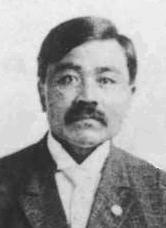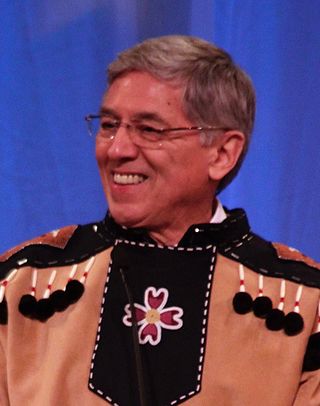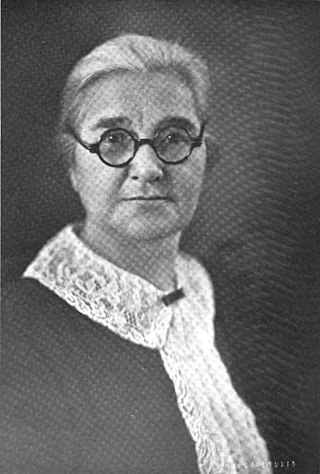
Southeast Alaska, often abbreviated to southeast or southeastern, and sometimes called the Alaska(n) panhandle, is the southeastern portion of the U.S. state of Alaska, bordered to the east and north by the northern half of the Canadian province of British Columbia. The majority of southeast Alaska is situated in Tlingit Aaní, much of which is part of the Tongass National Forest, the United States' largest national forest. In many places, the international border runs along the crest of the Boundary Ranges of the Coast Mountains. The region is noted for its scenery and mild, rainy climate.

Juneau, officially the City and Borough of Juneau, is the capital of the U.S. state of Alaska, located along the Gastineau Channel and the Alaskan panhandle. Juneau was named the capital of Alaska in 1906, when the government of what was then the District of Alaska was moved from Sitka as dictated by the U.S. Congress in 1900. On July 1, 1970, the City of Juneau merged with the City of Douglas and the surrounding Greater Juneau Borough to form the current consolidated city-borough, which ranks as the second-largest municipality in the United States by area and is larger than either Rhode Island or Delaware.

Sitka is a unified city-borough in the southeast portion of the U.S. state of Alaska. It was under Russian rule from 1799 to 1867. The city is situated on the west side of Baranof Island and the south half of Chichagof Island in the Alexander Archipelago of the Pacific Ocean. As of the 2020 census, Sitka had a population of 8,458, making it the fifth-most populated city in the state.

Wrangell is a borough in Alaska, United States. As of the 2020 census the population was 2,127, down from 2,369 in 2010.

Peter Simpson (1871?–1947) was a Canadian-born Tsimshian activist for Alaska Native rights, and co-owner of the first Indian-owned business in Alaska.
Marko Dapcevich is a former mayor of Sitka, Alaska. He is an "Honored Member" of a United Nations group, signed the US Mayors' Climate Protection Agreement, which is part of the Kyoto Protocol, and spoke out against Touchstone Pictures' non-use of Sitka for The Proposal. Dapcevich has testified before the Alaskan state Senate Finance Committee and has run for the Alaska State Legislature, District 2.

Elizabeth Peratrovich was an American civil rights activist, Grand President of the Alaska Native Sisterhood, and a Tlingit who worked for equality on behalf of Alaska Natives. In the 1940s, her advocacy was credited as being instrumental in the passing of Alaska's Anti-Discrimination Act of 1945, the first state or territorial anti-discrimination law enacted in the United States.
Benjamin Franklin Grussendorf, Jr. was an educator and Democratic politician from the U.S. state of Alaska. Grussendorf represented Sitka, Alaska and surrounding areas for ten terms in the Alaska House of Representatives, and remains one of the body's longest-serving members. He also served as Speaker of the House, becoming the first person to be elected to that office for three terms.

Albert Matthew Kookesh, Jr. was an American politician who served as a member of the Alaska Senate. He represented District C as a Democrat from 2005 through 2013. Previously he was a member of the Alaska House of Representatives from 1997 through 2005.
Kim Steven Elton is a journalist, commercial fisherman, government official and Democratic politician in the U.S. state of Alaska. Elton represented Juneau in the Alaska House of Representatives for two terms, from 1995 to 1999. In 1998, he was elected to the Alaska Senate, serving until his resignation in early 2009 to accept appointment as director of Alaska Affairs at the U.S. Department of the Interior by President Barack Obama. Prior to holding elected office, Elton was executive director of the Alaska Seafood Marketing Institute and a salmon troller engaged in commercial fishing.

Byron Ivar Mallott was an American politician, elder, tribal activist, and business executive from the state of Alaska. Mallott was an Alaska Native leader of Tlingit heritage and the leader of the Kwaash Ké Kwaan clan. He was the 12th lieutenant governor of Alaska from December 2014 until his resignation on October 16, 2018. He also previously served as the mayor of Yakutat, the mayor of Juneau, the president of the Alaska Federation of Natives and the executive director of the Alaska Permanent Fund.

The following outline is provided as an overview of and topical guide to the U.S. state of Alaska:

William A. Thomas Jr. is a businessman, commercial fisherman, and politician from the U.S. state of Alaska. Thomas served as a Republican member of the Alaska House of Representatives from the 5th District, comprising scattered rural and semi-rural communities throughout Southeast Alaska and stretching westward to Prince William Sound, from 2005 to 2013. Thomas served in the majority his entire tenure in the House and held multiple chairmanships. Thomas gained a seat on the powerful House Finance Committee during his second term and would eventually co-chair the committee. Following redistricting, Thomas lost reelection in 2012 by 32 votes to 23-year-old Jonathan Kreiss-Tomkins, a political newcomer who left Yale University to run.
Walter Alexander Soboleff was a Tlingit scholar, elder and religious leader. Soboleff was the first Native Alaskan to become an ordained Presbyterian minister.
Southeast Alaska Regional Health Consortium (SEARHC) is a non-profit medical, dental, vision and mental health organization serving the health interests of the residents of Southeast Alaska.
Benjamin P. Nageak is an American politician, having been a Democratic member of the Alaska House of Representatives between January 18, 2013, and January 17, 2017, representing District 40.

Matilda Kinnon "Tillie"' Paul Tamaree was a Tlingit translator, civil rights advocate, educator, and Presbyterian church elder.
Elaine Elizabeth Abraham was a Yakutat Tlingit Tribe elder and registered nurse who contributed to improving health care delivery in rural Alaska. Later active professionally in the field of education, she assisted with the creation of the Alaska Native Language Center, and, as a statewide administrator at the University of Alaska, in 1976, led the establishment of community colleges in underserved parts of the state.
Justin V. Parish is an American politician who served for one term in the Alaska House of Representatives. His family includes Tlingit people. In 2017, "Representative Justin Parish, a first-time legislator, introduced himself in Tlingit and acknowledged his own Native heritage. His paternal grandmother is a member of the Dog Salmon clan."
John Borbridge, Jr. was a Tlingit leader of the Raven L’Uknax.ádi from the Frog House and Wooshkeetaan yadi who played a prominent role in the Alaska Native Claims Settlement Act (ANCSA).











